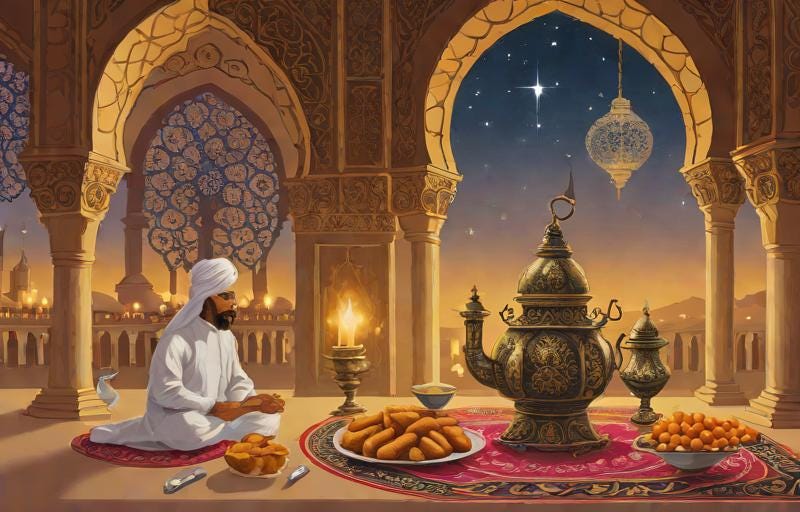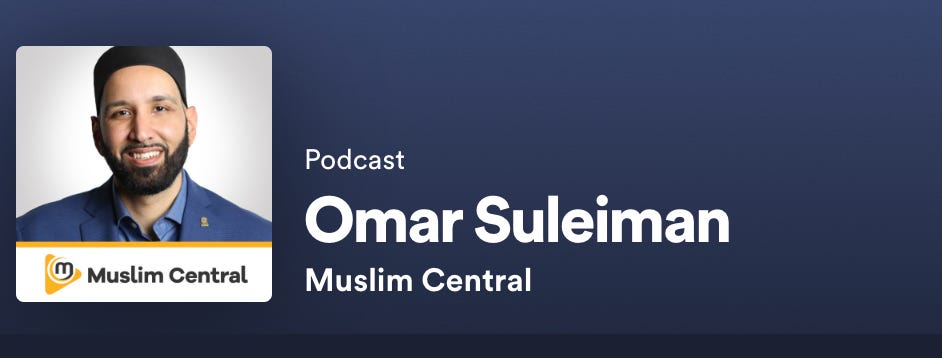Ramadan has arrived. It’s the seventh day of the month, we’re a quarter way through this blessed time, and I am only getting to grips with the contours of changing days.

Ramadan often feels like it comes around ‘too quick’ for me. We spin around the sun and it catches me by unawares, like a hare in a trap. Then again, I often feel like it’s grabbing me at the very moment I need it to, at the point in a year where my body is crying out for a break, my soul craves the slow down, when I need to focus on the world outside my work.
Ramadan arrives this year as the smell of spring is in the air. It feels fitting, somehow. It urges me to look up from the grindstone, notice the buds forming on crooked branches outside my window, feel a warmer breeze on my skin. Ramadan arrives like a long awaited train, with a sense of relief, and impatience for the journey to begin.
I am in a city where the sun is shining today, and I feel infinitely grateful.
There is a lot to be brokenhearted about in the world right now, but the ache of hunger in the pit of my belly reminds me of abundance. Reminds me of the preciousness of this life. Reminds me to be grateful.
Alhamdulilah.
Are you the answer to a family member’s prayer?
Or a prayer made by someone decades, or even centuries ago?
Why did Allah choose this moment in history for you to arrive?
Why were you put on this earth in this particular moment in time?
These were the questions posed by Imam and Scholar Omar Suleiman on an episode of his Ramadan podcast.
As I listened to these words, lying in bed after Isha and reflecting on what I wanted for the month ahead, I felt an unexpected tide of emotion rise up my throat. You know, those moments when your own feelings catch you by surprise? When you think, huh, maybe this was closer to the surface than I imagined?
I wiped hot tears from my face and wondered: whose prayers my life was answering? Who would be the answer to my own prayers?
I had always imagined the answers for my prayers would be revealed in my own life, but somehow, imagining them manifesting in a future generation was all the more moving.
Being reminded about the finite nature of my life - the finity - the smallness of it, has the effect of making my world feel all the more expansive. As if the act of realising one’s own diminutive scale puts all else in proportion. What if we thought of our life not as only for ourselves, but in service to those who could only have imagined the lives we lead? How many prayers had to be answered for us to live the lives we do?
This is the first year I am attempting to write through the month of Ramadan. Typically, I consider it a month of hibernation, a month where my creativity is sluggish and slow, moving through me like a python’s last meal in the autumn. But I’m trying something different this time, and I thank you for your patience with me.
How is this month, this Ramadan, or burgeoning changing of the seasons, feeling for you?
Watch: Crashing Eid (Netflix)
Maybe I’m sharing this a little early, but it’s a lighthearted show about an interracial relationship. Based in Saudi - and if you speak Arabic, keep an eye out on the subtitles. The translations tell you a little something something about the politics of the show! Also this article has a few more Arabic series for post-Iftar binges :)
Listen: Omar Suleiman’s Podcast
I do recommend the Omar Suleiman Ramadan series. They are short episodes with thought provoking questions, often tied to contemporary urgencies. His most recent episode talks about eating Iftar while Gaza is starving.
Read: Dune Review on Vulture
I watched the new Dune film, and while it was a visual feast, I didn’t quite get as into it as I did the first film (and I had issues with it anyway). To be honest with you, I couldn’t get past the overt references to Sudanese history, language and practices that were lifted out - sans context - alongside many others from the region. Roxana Hadid writes:
Part Two ends with an attempt to validate Chani’s insistence on Fremen self-determination, in part by emphasizing that Paul is now one of Arrakis’s oppressors. But that indictment is little more than posturing, given how disinterested Part One and Two otherwise are in the distinctly Middle Eastern, North African, Arabic, and Muslim textures of Fremen culture. Although Part Two invents regional and generational differences among the Fremen when it comes to the Lisan al Gaib prophecy, the details in Herbert’s book that help us understand who the Fremen are outside of that divination are again absent here. ... The societal and lifestyle particularities that define the Fremen outside of single-minded struggle are of no use to Dune: Part Two. When the film does bring in authentic elements of MENA and Muslim culture — like Stilgar’s warning Paul to avoid djinns in the desert — it’s played for laughs.
Thanks, as always, for supporting my newsletter. A reminder - for those who might not know - you can find out more about my books here, you can donate to Sudan here and you can subscribe to this substack below.
Thank you so much to all of y’all who are paying subscribers - I see your support, and I appreciate it. But for everyone - truly, what I value most is your engagement, your comments, your feedback, your sharing with friends. So thank you for the intimate intellectual community we’re creating here, and see you next week inshallah!
Best,
Yassmin








Loved reading about how much Dr. Omar Suleiman’s series is resonating with you, I have loved listening to his wise words this Ramadan when the world feels unliveable. And watched Crashing Eid twice in January, it’s a really heartwarming series with so much authenticity. It related so deeply with me, even if I’m not an arabic speaker (Indian muslim👋🏻), the emotions were pretty relatable.
ps: I don’t usually comment, but perked up at your recommendations. 😄 Ramadan Kareem🌙
Thank you for this. I think I read this exactly at the time in my life I needed to. I am not religious, I consider myself a spiritual person. But this year my soul has guided me to not only Hinduism but also Islam. I held a fast for shivratri(a Hindu festival) and feel deeply called to fast for Ramadan. But it seems to be too late to start this year. Next year will be different though I hope.